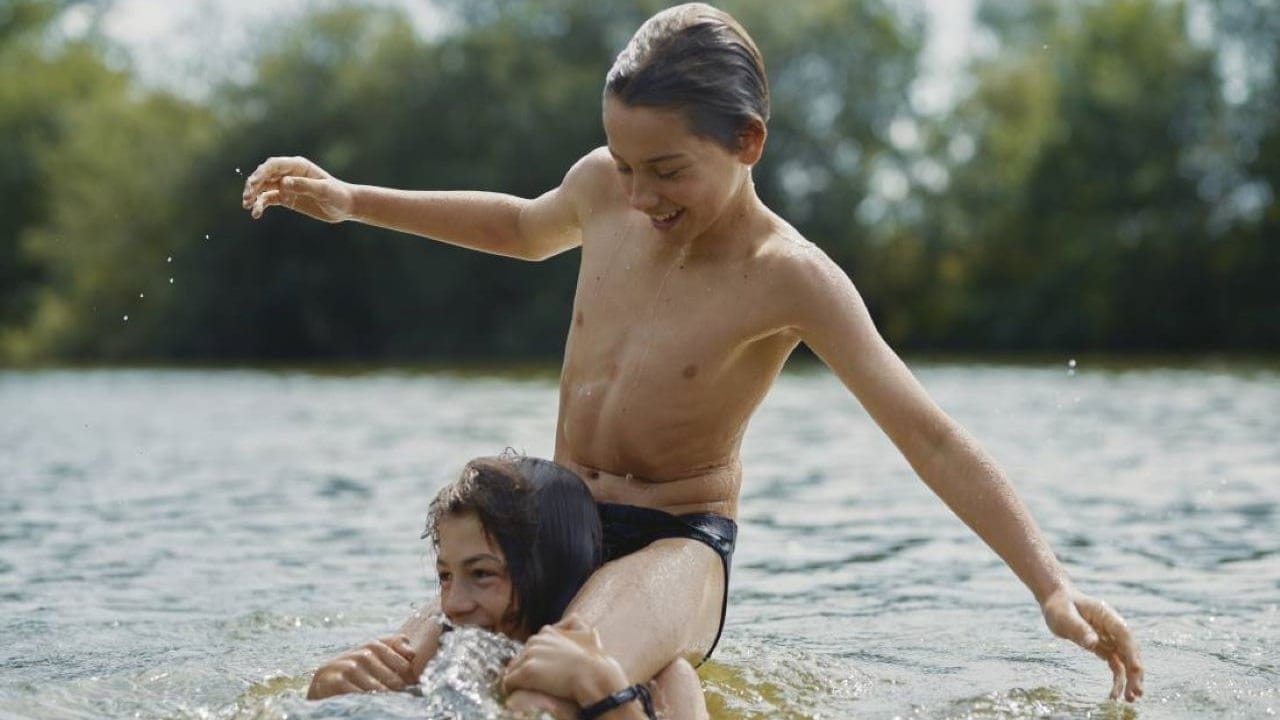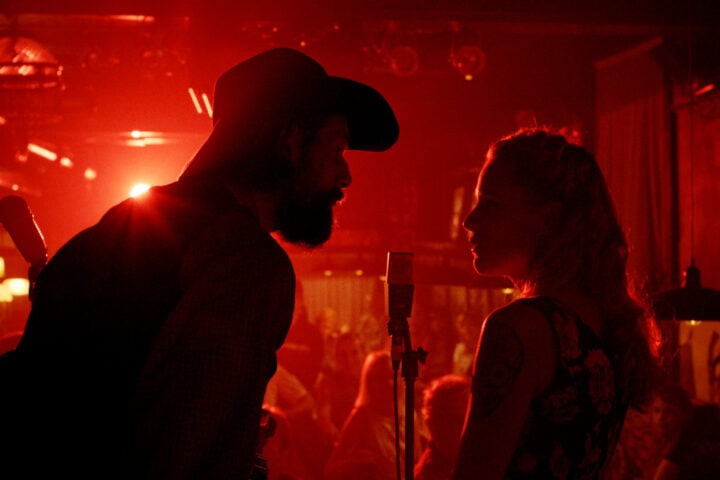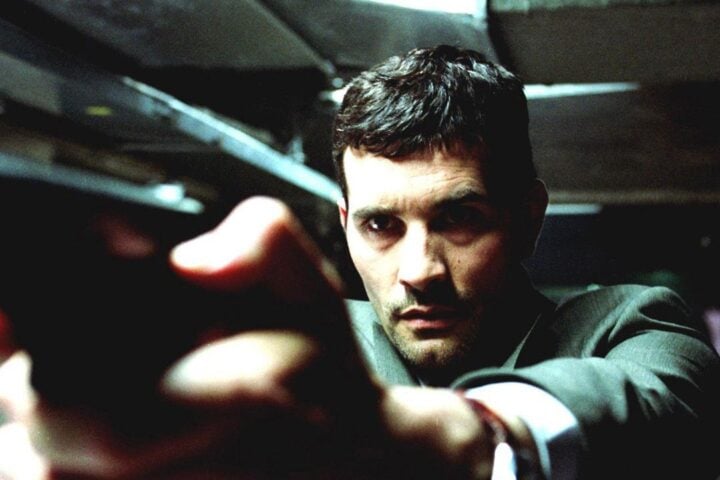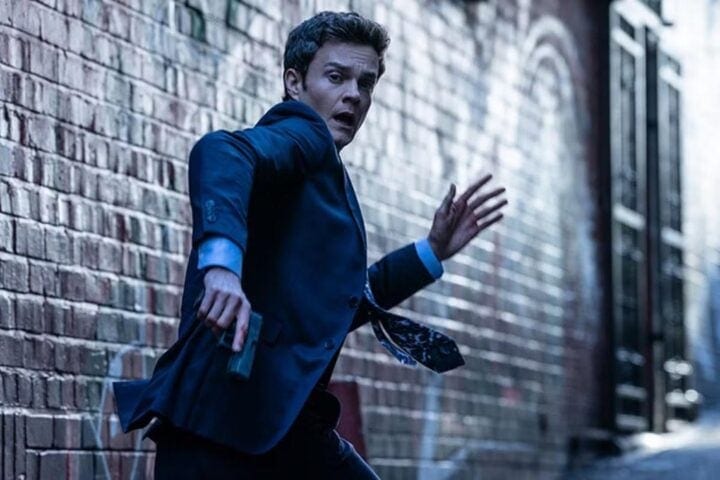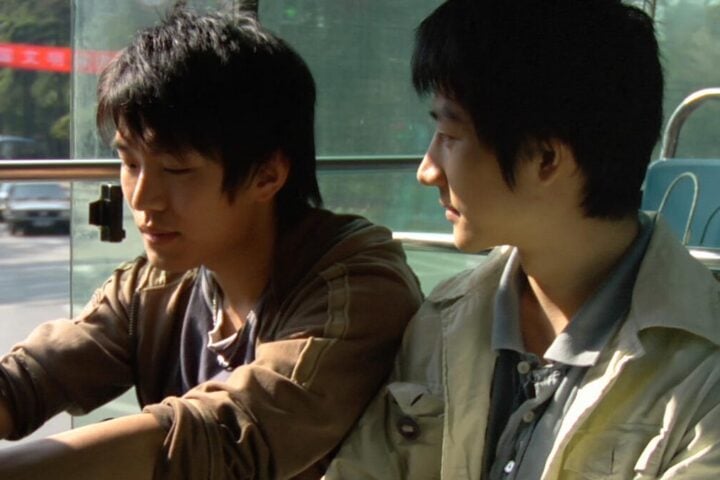In Young Hearts, 14-year-old Elias (Lou Goossens) sees his seemingly idyllic life in the Belgian countryside crack when another boy around the same age, Alexander (Marius De Saeger), moves in across the street. Elias is immediately drawn to Alexander, whose insouciance with regard to all things queer both puzzles and marvels Elias. At one point, after cycling through the countryside, as they eat cherries by a lake, Alexander responds to Elias’s questions about his relationship status, telling him that he was in one with a boy last year.
The film wallows in a fantasy of Northern European rurality where childhood freedom is granted by hands-off parenting and bicycles that never need to be locked. In this world, going to school involves biking past comely cows and heavenly fruit stands, and pit stops to hold piglets and swim naked in a pond. Here the worst act of bullying comes in the shape of a drawing of a penis on a photo of Elias published in the local newspaper. It’s enough, though, to hint that something sharp whirs behind the smooth façade of everyday life. For all the semblance of harmonious co-existence, the awakening of queer love triggers in Elias an unbearable agony.
Through Goossens’s uncannily expressive eyes we see how in the face of desire even the most supportive of domestic or social arrangements can crumble. There’s little suggesting that anyone would reprimand Elias if he were to articulate his feelings for Alexander to his entourage of friends. But something about the relationship still eats at him from inside.
It’s more than just shame. Goossens’s face, all but frozen by the struggle between yearning and resisting, suggests that a 14-year-old’s body couldn’t possibly hold the enormity—and the destabilizing effects—of romantic love. Young Hearts also stresses the asynchrony between the fantasy of a safe and orderly society and the chaos that desire necessarily wreaks.
Tenderly observed, writer-director Anthony Schatteman’s film offers the rare opportunity to indulge in a fantasy where the risks of queer love going public are anodyne, even negligible, while also leaving room for a casual critique of what we could perhaps call Nordic parenting, where children enjoy so much autonomy but are also left to their own devices. The messy business of emotions is thus promptly shelved away in such family dynamics.
Ambivalent feelings rot inside Elias, manifesting in physical form in the rarest of moments, as when the boy breaks his father’s (Geert Van Rampelberg) framed gold record or pushes a friend to the ground out of jealousy over Alexander. In Young Hearts, the sheen of acceptance is so thick that it silences the inevitable contradictions that pump the human heart.
Fundamental in this context is Elias’s grandfather, Fred (Dirk van Dijck), in whom Elias finds a special kind of unconditional love. The man also nakedly wears his pain on his sleeve, as he’s still grieving the loss of Elias’s grandmother, and it’s through their shared vulnerability that they bond. When Elias’s heart aches because of the ups and downs with Alexander, Fred simply holds Elias in his arms, recalling the scene in Call me By Your Name where Elio’s father teaches him about love by encouraging him to love despite everything. Here when the adult tells the child that it will all work out, and that it doesn’t matter who they love, it isn’t a matter of mere rhetoric. It’s a truthful and sobering moment that feels like an act of reparation.
Since 2001, we've brought you uncompromising, candid takes on the world of film, music, television, video games, theater, and more. Independently owned and operated publications like Slant have been hit hard in recent years, but we’re committed to keeping our content free and accessible—meaning no paywalls or fees.
If you like what we do, please consider subscribing to our Patreon or making a donation.

